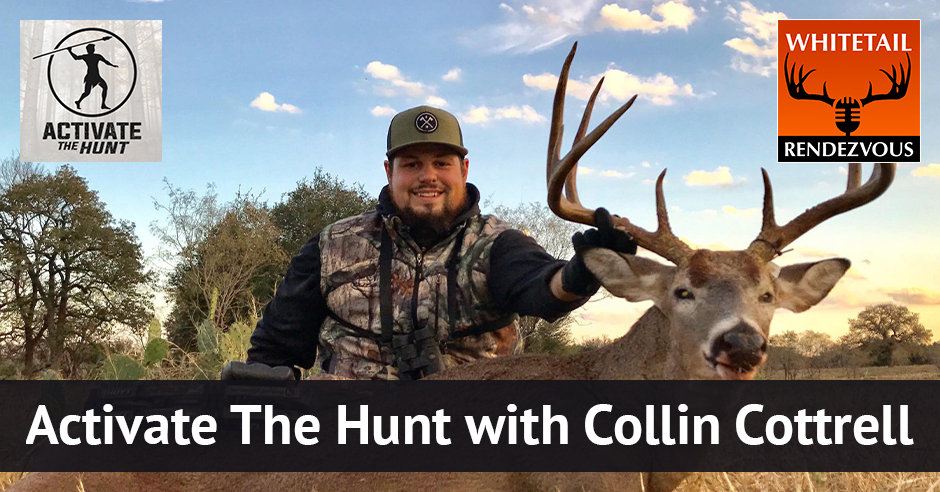
—
Listen to the podcast here:
Activate The Hunt with Collin Cottrell
I ran across, Activate The Hunt with Collin Cottrell. Collin has been in digital marketing and outdoor industry for a lot of years. He was looking for an opportunity to take all his skills and start a digital campfire and so he has. Amy Hunter was on my show and she said, “You’ve got to get a hold of Collin and have him on the show,” so here we are. Collin, welcome to the show. I can’t wait to unpack Activate The Hunt, Digital Campfire, mentorship and all the other things we’ve been on slate to talk about. Why don’t you give us a little bit of your background and how you get to this place?
I want to say thanks, Bruce, for having me. That’s very kind of Amy. She’s part of Digital Campfire and she’s been a huge part of helping me promote and grow that. Everybody who’s part of the Digital Campfire is a huge part of that. I’m thankful to be on and have this opportunity to talk a little bit about what I’m passionate about and that’s hunting. A little bit about my background, I’ve been working in the hunting space for a couple of years solely focused on digital marketing. I’ve worked with some great clients over the years and with my media company. I’ve worked for other media companies as well.
I’m part of the hunting space and been passionate about hunting and marketing for a long time. I was very fortunate to start out at a very young age. When I was in college, and coming up with digital marketing, social media marketing and everything that goes with that. Obviously, you being a media guy yourself and you know what it takes and all about that, I got my start in the marketing side of things. I got my start being passionate about hunting from an early age.
My dad and uncles introduced me to hunting from a young age. It’s the tradition and heritage in my family for a long time. I started out with squirrels and cottontail rabbits and from there, we went to deer hunting. I became passionate about hunting and being a hunter and the whole lifestyle of hunting. As I went to college, I was trying to figure out what I wanted to do in life. The marketing side of the hunting industry became an open door for me to be involved in greater depths in the hunting space. That led me down to a cool journey of meeting a lot of great people, having a lot of opportunity to be mentored by some of the best in the hunting space and hunting industry, and meeting a lot of great hunting industry advocates. I had another project before this which I ended up selling. It opened my eyes to the opportunities in the hunting space and to share your passion for hunting, and ended up selling that business.
I had to take a few years off as a part of a no-compete clause. In that time, it opened my eyes on how hunting was portrayed outside of the hunting industry by non-hunters. Not necessarily anti-hunters but non-hunters. I wanted to give them an opportunity to become a hunter like I am. As for me, I have a dad and uncles to teach and mentor me but there’s a lot of information about hunting. There’s not anything that brings them down the line to teach and help them to continue to mentor them as they move forward. That’s where Activate The Hunt comes into play. From there, the Digital Campfire is the community aspect.
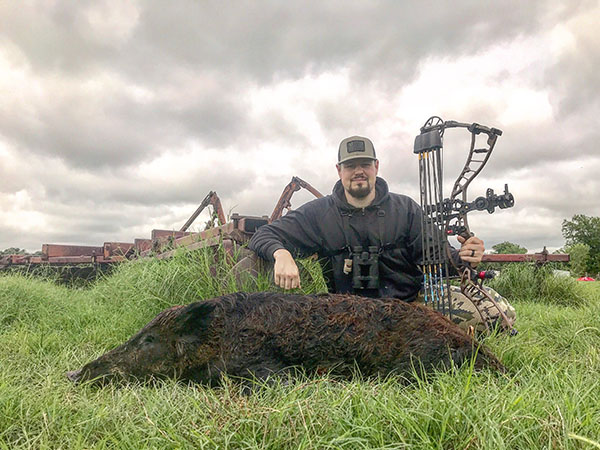
When you think about Digital Campfire, social media is huge but you can get buried. I say there’s a lot of fluff, and you don’t get to take potatoes or back straps and onions. That’s how I see your Digital Campfire. You bring people along and giving them space to Q&A, talk and ask all levels, beginners, seasonal hunters and 365 hunters. That’s how I break down the hunters. What type of questions do the people ask? What’s the interchange?
There is a lot of there in social media and a big reason why wanted to start. It’s not a big social network. A big reason I wanted to start Digital Campfire was to give experienced hunters and especially new hunters, a place that they could be more private. A little more comfortable about sharing their journey and not have to be so vocal on social media. Everybody is being vocal on their social media but this gives people a private community where they can ask some stupid questions and different things like that. There are people in there who ask questions that I won’t think about because I’ve grown up as hunter my whole life. I have a dad and uncles that taught me how to hunt and mentored me as a hunter. I’ve had other great hunters that mentored me throughout the years. It’s always been accessible but as I built this community, it has gained momentum by using social media to outreach and using media channels like podcasting, marketing and different things like that. It brought those hunters into the space and I’ve started to learn.
New hunters and those who have never been hunted have a ton of questions. A lot of questions are things that I’ve never been thought of. It came so easy to me because I grew up around it. It’s something ingrained in me from the start and having those questions, the simplest, “What’s this whole big issue about the wind in hunting?” It seems like a stupid question to any experienced hunter but that question is a huge thing for a new hunter like, “Why do I have to know which way the wind is blowing? Why does it even matter?”
I had a new hunter on his first hunt ever at my lease here in Texas. I personally mentored him on his hunt and one of the biggest issues that we had was whirling winds. He found out why the wind was so important on his hunt. The wind in our face when we got that mid-morning swirl and all of a sudden there were some wild hogs coming in and those pigs were there for a second and then they were gone. He didn’t realize how big of an issue the swirling winds can be on a hunt. It took away his opportunity to arrow a wild hog. They were there for a second but he wasn’t able to get that shot off because they were in and out so quick. It’s cool to see that information come into play. Questions like that, they happen quite often within this community.
I see the mentoring aspects of having a private place like this being a huge thing, especially as we have increasingly been attacked, these hunters and about our way in life. One of the things I wanted to mention too on the subject is the algorithms on social media. We follow people like I follow you but I don’t see all of your posts and that’s becoming an issue for me as well. We want everybody to see our post so they can learn from us. Obviously, on social media networks, they’re not allowing that.
I’ve always done my best to help those that have asked me hunt- related questions. Share on XThey want you to pay to reach those people and I understand that. It makes sense on the business side of things, I understand that. This community and my member community allows you not to have that algorithm. They censor you from reaching the people who are in the community to talk about your story as a hunter or to ask questions to other hunters. Another thing too is that you start to see some of the censorship because it’s hunting-related post and they don’t want to see that. I’m not going to the political side of that but my private members network in Digital Campfire allows you to post comfortably, any kind of photos or videos you want in reference to hunting.
It’s a challenge that social media has millions of people, and there are millions of people that don’t want to see a dead deer. It gets worse when a woman puts up a dead deer. I don’t know why. I’ve never been attacked. Some of my women friends had been attacked and they were like, “Are you kidding me?” It’s brutal. I said it bores on terrorism.
They’re easy to attack. For some reasons, women are easier to attack than men maybe because they don’t fight back as much but it’s important that women stand up for themselves in their way of life. We need to continue to do that as a whole, as a community and we need to stand up for our women, men, any ethnic group and anybody who wants to become a hunter and live that lifestyle.
One thing that you can address is sometimes we get in a Ford and Chevy, I can’t pull back a bow, I pinned my shoulders so I hunt with a crossbow. There are some people that look at me cross-eyed, especially some traditional people with this traditional bow. It isn’t but because I’m handicapped, the State of Colorado gives me a permit that I can hunt during archery season with a crossbow and so keeps me in the field. Without that, I wouldn’t be in the field. I’d be hunting with my rifle, which I don’t want to do. A number of states now do have crossbow permits or in Wisconsin, you can hunt with whatever you please. It’s been proven. Michigan did a great study that the kill rate doesn’t go up significantly because you’re hunting with a crossbow. Hunting a whitetail deer getting within 20 to 30 yards because of the cover, I’m not talking about hunting them on a bean field, I don’t care if it’ll be rifle, some millimeter rifle or stick in a string, you still get the 30-yard shot.
It has become a big issue, the back and forth bickering between hunters. That’s not a thing to see when you look on my social media posts. If you go through them, I have a lot of several posts where I talked about that, the community aspect of working together and activating the hunt together. It’s important just because you use a bow or a longbow, a gun or crossbow. Whatever method you like to use for hunting, it doesn’t make you any better or different. It’s the method you like to use as a hunter and that’s okay. There’s nothing wrong with that. We need to stick together and stand together as we get more attacked by outside people who don’t understand our way of life. We need to band together and have a community effort together. We talk and preach that within Digital Campfire. Those are some of the topics we have in weekly live calls, we do with the community. I don’t dictate what that conversation is because I’m the head guy.
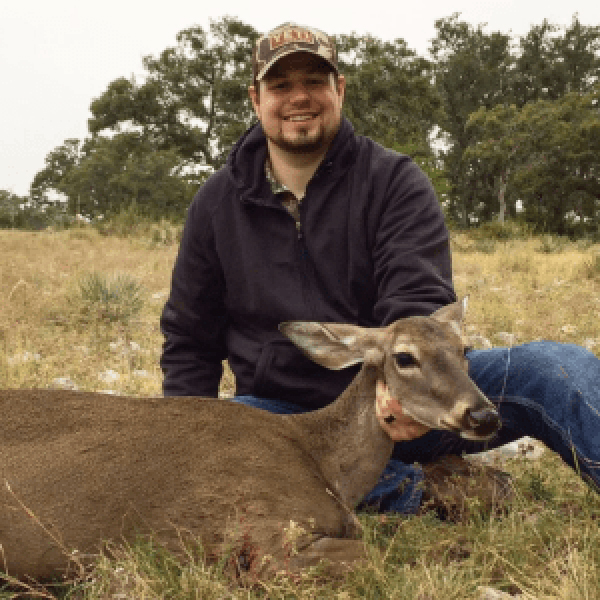
The community dictates that conversation and they get to choose the topics and what they’re want to talk about. One of the topics we definitely talk about often is conservation, coming together and working together as hunters no matter which method or which way you do things, whether you like to shoot small bucks or big bucks. Whether you like to shoot a crossbow or an upright compound bow, it doesn’t matter. This community aspect is important for us to band together. I can’t emphasize that enough. We need to band together. It’s important for the future of hunting. I’ll continue to say that over and over again through social media, through talking with people in person. Whatever means or methods I have to do in podcast. I’m going to continue to talk about that and inspire people to work together.
You’re talking about your story of staying in the game, being able to use a crossbow. I recall my best friend, Robert Hoague and he started a website back in 1994 called BowHunting.net. Originally, it was Bow Hunting in AOL and thought the domain name in 1996. He’s been one of my greatest mentors and become one of my best friends. Robert is a through and through hard-core bow hunter. He started out with a traditional bow then compound bow throughout the years. Robert is the new Fred Bear. He doesn’t necessarily like using a crossbow now that he’s in his late 70s, but he does it because they keep him in the game and they’re able to continue to spend time in the woods and nature. He loves being out there. He loves the cat and mouse hunt game for a big whitetail deer here in Texas. That’s awesome to continue to hunt and he buys the tags every year and contributes to our conservation efforts to bring new hunters and mentor them as well. Robert is part of the Digital Campfire. He’s under sharing his wealth of information and knowledge to the community.
Collin, I salute you for reaching out and doing what you’re doing because it’s so important and there’s so much misinformation and there’s clutter that shows that I listened to guys like you that I become friends with. It’s my reason for hope that we’ve got some good information coming out that can help people get into hunting, be it male, female and adult-onset hunters. What’s your take on how can we serve the adult-onset hunter?
We have so much focus on kids and getting them involved in hunting, which is great. I’ve nothing against that. A lot of effort being put into that and kids are very important to continue to get and introduce them to hunting and hunting lifestyle. I was introduced to hunting from my dad and uncles at a young age and I’ve continued to live that hunting lifestyle. Even though I’m a Millennial in my early 30s, I’ve continued on and got so much value. I’ve learned so much about myself and about life because of hunting. Kids are very important but the adult-onset hunter is going to help us get those kids more involved because we get dads and moms involved. We might not have that opportunity and we mention them and we teach them about the lifestyle of hunting and everything involves will continue on and pass it on to their kids. They’re going to get excited, then they’re going to want their kids to get excited as they are so they’ll going to pass that on. These are passionate to me. These are things and topics that I have thought out over and over in my little brain. I want to see this demographic reached so we can continue.
Hunters are getting older. The license cliff is real. It’s happening. People 50 to 60-plus years old is our highest demographic of hunters unfortunately. Technically, we don’t have 60 to 65 years old, in most states, you don’t have to buy a license anymore. That’s a big issue because that quickly changes how much money is going on the conservation efforts because it comes from our North American Wildlife Conservation Model. If we can get 25 to 45 years old involved, that’s going to trickle back down and start to build up from the first time you can become a hunter which states ten to twelve years old and 25 to 45 years old range.
It is vital for hunters to band together. Share on XThat’s an important thing that we need to start to talk about. We need to start putting more effort and energy into. Media-wise, the industry is starting to put more emphasis on this with outlets like Powderhook, outlets like the different podcasts that are out there. The public is starting to talk about this. There are very popular YouTube shows and community. There are some different communities that I have so much respect for because they’re starting to talk about these things and this is important to all of us. We need to band together. I don’t care what your podcast talks about, whether it’s hunting-related, what community talks about, who’s part of your community. We are all in this together, we need to stay together and stick together as a community.
R3: Retain, Reactivate, Recruit hunters. Male, female, all ages, genders, races, it doesn’t matter but it’s everybody’s job to do it. That sometimes gets fuzzy and everybody gets busy, I hate that. Everybody in the world has been given 24 hours, that’s how God set it up. If you’re a farmer, you get up with the sun and you go down with the sun. If you’re busy sixteen hours a day, that’s the way it is. People have a mantra, instead of saying, “I’d like to considered doing that but it’s not that important to me.” They say, “I’m busy.”
I want to say one more thing about adult-onset hunter is that organic foods and organic cane has got people’s interest. I know a couple of vegans. Stephanie Vu is one of them. She got into hunting because she wanted to control where her food came from and she decided some of the healthiest food that she can get is wild game. She started to eat wild game and I see a lot of people say, “It’s important to me to know where my food comes from.” You become a hunter-gatherer. Being hunter-gatherer is for thousands of years, that’s what life was. Now, it seems a part of the population has slipped back into that lifestyle because they say, “I’m done with McDonalds, I’m done with fast food. I’m done with all of that. I’m going to grow my food and kill my food, process all my food and eat my food because the rest was crap.”
It’s awesome to see that opportunity coming about the Local Food Movement, the Homestead Movement, The Farmers Market Movement is part of that. That all plays together. If you’re in a local community, first and foremost, if you’re a hunter, I would say hunting for your own food is organic as it gets. Instead of going to the supermarket to buy food, you need to support your farmers and your local ranchers. You look into other sources of food as well like in The Farmers Market.
Even my wife and I, we literally purchased a property with land so we could start our little homestead. We raise meat chickens. We have egg chickens. We’re getting ready to start our own garden. I grew up with these things. I grew up on a farm. Being a Millennial, I stepped away from that for a while. Even though I’m a hunter and I try to kill my own food, this and that, I’m looking outside of even hunting to see the benefits of growing your own food and harvesting your own food on the farm as well. That’s altogether and it’s cool to see this transition. This t food movement, the meat eater type movement as well has come together to bridge the gap to those who are looking for hormone-free foods or pesticide-free foods or organic type source of wild food.
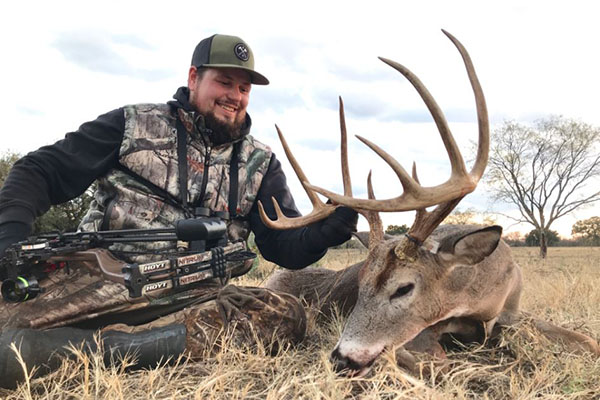
It’s giving us as hunters an opportunity to have some wonderful conversations with non-hunters and invite them to take part in hunting and introduce them to the different method and means of hunting and gathering and that whole process and then harvesting a raw meat from an animal. You hit the nail on the head. That movement and conversation is very important. We need to continue to approach that but on the other side of things, I’m not going to tell somebody that my only means of food is from hunting because that’s not the truth. That might rub people a little bit wrong got that wrong, but I like to hunt for other reasons as well, not just for the food. There are two sides of it for sure.
Collin and I talked about a lot of different things that impact hunting both content influencers and media influencers. What podcast you’re going to listen to, the mantra is the same. We will get to Collin’s hunts down in Texas towards the end of the show. The biggest challenge we have isn’t buying gears. It isn’t practicing with your bow. It’s defending our right to hunt. When it comes down to it, people have to be educated not just on tips, techniques, strategies and seasons, days of the rut and food plots. They have to be on the stand so they can have a meaningful conversation with a non-hunter to say, “Did you realize this and that?” That goes beyond pitting.
That’s the taxation I go back to support conservation. Collin said we have a North American model that we all have a part of. The people own the critters except on private land. Even on private land, if they leave that land, then they go on public land then they’re fair game. It’s an interesting concept that stood the test of time and it’s being challenged on many different fronts. That’s why my conversation with Collin is important for you to seek out and start journaling. If I’m going to have a conversation with somebody, what are the five things I’m going to say to a non-hunter to open up the conversation?
The food side of things, going in the supermarket. Providing yourself food by hunting it and killing it is a huge conversation opener and we could go deep into that side of things. I’m a little bit lost on this question.
The first thing that everybody knows is food. People are concerned about food. It’s conservation. Have you ever driven the mountains? Have you ever gone to Rocky Mountain National Park? Yellowstone? You see all these critters or driving around all of a sudden you see a whitetail deer. Because of hunting and conservation efforts, hunters support all that. As a non-hunter, you won’t haven’t to put a cent towards seeing those wonderful game and enjoying that. It’s the same thing with fishing, so you get conservation and you have the food thing. The spiritual side of being in the wilderness and being a part of nature. Hearing wolves howl and seeing grizzly bears up close and personal, and doing all these things, in the sense of adventure, that’s what people have lost. Taking a walk and knowing what to do and what not to do being surrounded by nature.
Walking down a trail and being with nature are what hunters look to as an important piece to the puzzle. Share on XWe lose that direct connection and appreciation we have for wild animals in wild places. I talked about that in another podcast as well. Having that disconnection where somebody who’s living in a city their whole life. As we introduce hunting and the value of hunting to them, it’s important to talk about these different things.
Let me frame it this way, 20% of the population that are hunters are passionate. 20% of the population that are anti-hunters are just as passionate. We get 60% of the population that could carry either way. They’re going to be swayed by the media, what they hear on TV and social media. They’re going to get swayed either way. Collin, let’s go back and take on people who are hunters with that 60% of the population.
I call it the value of hunting. First, we touched is organic wild food, hunting and killing your own food. That conversation we had about having that food and killing it with our own two hands and bringing it to our home for our family. Another one that you get touched on is connecting with our Creator, the spiritual side of hunting. Whatever that is for you, I think everybody has their own way. They connect with God in nature or they have quiet time for stress-relief or having a therapeutic moment in the woods and quiet time in the woods. That’s important. From there, we can start having that adrenaline rush, natural high of the cat and mouse game of hunting. There’s a lot of value in that. When you’re pursuing wild game and there are animals coming in, there’s an adrenaline rush that your heart starts to beat, you get excited. That part of the hunt is valuable. Especially if you’re a non-hunter, you might not understand that but talking about that and sharing that moment is special for us, hunters. From there, we can talk about having appreciation for wild places and animals.
Having this public land or having a private land to be able to pursue and step foot on and hunt animals on this land is a special thing. We need to take care of our own land. God tells us to take or our land. We are supposed to be good stewards of the land. No matter if you believe in God or not, whether you’re a hunter or not as well, you need to take care of the land and managing and having conservation for the land and animals is a very important part of that. Couple of things that I wanted to touch on, it’s application in life. Growing up from being a child to going to adulthood who becoming an older adult, and until your death, there’s a different application that you can use. A knowledge, the training it takes to become a hunter, the skills and the different things that involves for hunting wild game. We all know and love that part as well. There are so many different aspects and values of hunting in becoming a hunter. I’m only touching on a small part of them. These are few little points. It’s important as hunters to be able to acknowledge these things and tell this to non-hunters.
The thing I like to do is spend a lot of time in the ocean than the mountains. Take a person that has never seen sunrise. A lot of people have seen sunset but the number slips down on sunrise. Because to see a sunrise, you better be up at 4:00 AM or 4:30 AM when it’s still dark. I’m not talking about gray, I’m talking about the dark out, stars out. Say we’re going to see a sunrise, get on the beach or get to the mountain top and then sit there. Don’t say a word, sit there and let the world come alive. It’s amazing and while you do that, the world of hunting will enable me to do that many places in the world. Some of my fondest memories, but looking at the creation of the Majesty, no artist can recreate it and it’s just there. That’s an experience that has nothing to do with killing animals. That’s an experience and we, as a society, have gotten away from those simple things of taking a moment, “What a gorgeous sunrise,” and get on with their life. To take that 30 seconds and the minute you do that, it enriches you immeasurably in my humble opinion.
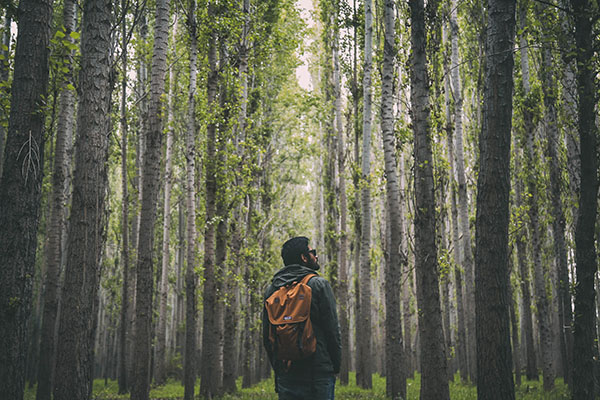
We look at the world, we look at horrible things like suicide and stress. Those kinds of things, and there’s a lot of that unfortunately. It hurts and breaks my heart to think about those kinds of things and those things close to me in my life at times. It always comes back to what you’re talking about. Spending some time in nature, it’s a good time to heal, to think about everything that we’re blessed to have. To be grateful for the life we get to live. It’s a big thing. It’s important to be thankful. If you’re not a hunter and you happen to be reading this episode, I hope there are non-hunters trying to figure things out. Go out in the woods, whether you have a bow on your hand or a gun or not. Maybe you don’t, you’re walking in the woods. Enjoy that sunrise and sunset. The way that you’re walking at the trail and listening to the birds sing and squirrels looking for food. Whatever it may be, that part of our outdoor experience is what hunters look to as an important thing to the puzzle of hunting. It’s not all about the killing, it’s not all about all that. That’s part of it but a big part of it as well is the refreshment and therapeutic time we have, the quiet time we have, seeing, smelling and hearing nature around us.
Let’s go on some of the questions you get on Digital Campfire about hunting. For newbies or people that don’t have experience, break it down to beginners, seasonal hunters and 365 hunters. Beginners do not know much about hunting. Seasonal hunters, they go to their nine-day traditional cabin in the woods and they go to their duck, antelope, deer hunt and they come back from that, wash their clothes, put it in a rack. They don’t see it for twelve months. Then there are people like you and I. There are 365 hunters and we think, live and breathe hunting 365 days. When they think about that, in Digital Campfire, let’s talk about some of the questions people are asking that I know some of my readers have the same questions.
One of the biggest ones that we have talked about is what happens after you make a kill? It’s a big part of that. I put a post on my Instagram profile, talking about that and I’ve taken pride in the whole experience as a hunter but I take pride in the preparation, the gutting, butchering and skinning. That part of the hunt, we talk a lot of that in the Digital Campfire. What’s the process and what it’s going to be like and you can’t explain it, that’s hard to explain. You could talk about the tips and tactics around that and as I mentioned earlier, I had a new hunter come out and hunt with me here in Texas. Part of that was the hunters killed a wild hog.
We were able to break that animal down and walk through that process of how to break up animal down. They didn’t realize the sights and the smell, the things you see and how to do it. There’s so much that goes on around that. How quick do you want to do that? Do you want to ice that animal down? Where do you want to do it? What knives do you want to use? How do you want to store that animal? There are so many aspects around that. We could get deep if we wanted to. That part of the process, let’s say, that’s one small piece of the puzzle.
After you’ve actually killed an animal, we get that question a lot. We try to slow down some of the new hunters in our community. I try to slow down and say, “You need to know this part but you need to know the first part. You need to get introduced and get prepared and understand that part of that first. When you get to this part, we need to talk about that and walk through that.” Honestly, I would say to bring someone through that process to hopefully mentor them in person, but that question is one of the top questions we get. We talk about it a lot, try to explain as much as we can about that topic.
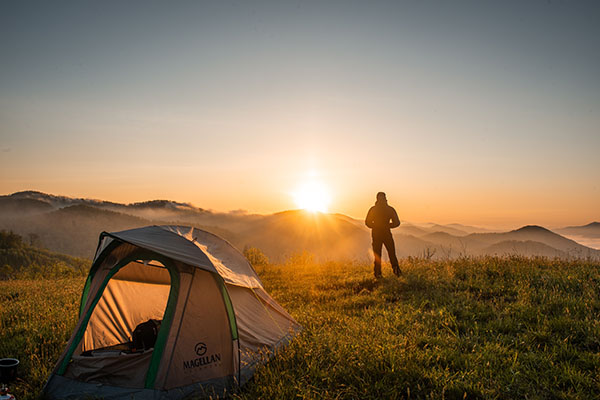
There are plenty of people, YouTube videos, information out there that I know. The State of Colorado has great field game preparation videos and they’re out there. You’ve got to become a student and don’t wait for somebody to show you. I remember the first deer I killed, my buddy looked at me and I looked at him. He said, “Everything is inside there. It’s all part of it, so figure it out.” When you’re there, it wasn’t pretty. I learned and I broke down that whole deer, quartered out, back straps off to rib it. I took everything off that and did everything. The next time is a whole lot simpler. Now it’s simple, I can take an elk apart myself without a problem. I need some two shot knives and a parachute cord.
In that process, don’t let it be as intimidating as might sound. Those things are not easy in the first time you do it, but you said watch some YouTube videos, this can help you and find somebody to teach you. Whatever method is the best for you to use and learn, take that information and try to do it. The worst that can happen is cut a piece of meat on accident that you’d maybe didn’t want to cut. You could still use that meat. You’re not going to ruin it.
After that, it gets messy.
Especially after the gutting process, you get into cutting the meat, those kinds of things. I get a lot of people that say, “I don’t know how to do it on my own.” Do it. Take your time and do it. Take some time learning and then try it. Every time you do it, you get better. I’ve been hunting for over twenty years. One of the things my dad taught me was to cut and clean an animal because we didn’t pay a processor, we did it ourselves. I’ve been doing that for a long time but I’m still learning different methods and different ways. Little ways to make a shortcut or maybe cut an animal a little different or whatever. Cut a back strap. There are a lot of ways to do it and I don’t think that there’s a right way to do it, so learn, take the step and don’t be afraid.
What’s the future you think to activate the hunt? Where do you want to go to?
I can see the community aspect of the Digital Campfire as having a group of people together, challenging and inspiring each other. I hope that it grows to a huge and big community. One of the things we talked about is the hunting advertising and marketing side of the hunting industry and how that works. A lot of people don’t realize that sponsors basically in hunting space the tv shows, and the different media outlets, they pay you. Not necessarily paying us but if you want to be sponsored and you want to make money for your organization or if you want to build a business, you have to get sponsors and they have to pay for your bills and your building. I’m doing my community differently. I don’t have any paying sponsors, although I could reach out and do that but I don’t want to. I don’t want anybody to dictate what I say within my community. I don’t want to say that this product is better that this product. This bow is better than this bow. This part of the hunt and the hunting industry, I don’t like these things and I understand that is a necessary evil but I don’t like that side.
I could see this community growing and people starting to understand, “He’s building something that’s raw, authentic. It’s not about me, it’s about the community as a whole, it’s about hunters and new hunters helping each other on a real level.” Outside of social media and outside of avenues, that’s what I see the Digital Campfire is growing into. Whether it’s some conservation issue that we need to band together and start to talk about. We’re going to start to bring up those kinds of topics on the conversation or it’s tips and tactics, “What bow is my favorite to use?” I have nothing against talking about that. Everybody asks questions, “What bow should I get? What arrow should I buy? What broadhead should I use? What gun should I buy or what rifle?” Those kinds of conversations are happening, but I want them to be authentic and I want them to be not something that I’m getting paid to say.
Unfortunately, in the hunting space, there’s a lot of that. It’s hard to weave through the BS. I get the community especially the new hunters, they’re telling me, “I didn’t realize this side of things.” I didn’t realize that there’s a lot of people out there in social media that are saying things and posting about certain things just because they get something for free. It’s because somebody paid them to say or do that, it’s unfortunate. I see the Digital Campfire being a real and authentic community of people together working on different things that are all hunting and outdoor related as a team.
Final thoughts?
I appreciate this opportunity to share with your community about what I’m doing. For us to come together, as both of our communities work together and start to spread this passion and this lifestyle of hunting. That’s important to me, near and dear to me. I don’t care about the business or organization side as much. The whole idea of bringing this together is to help to continue to bring new hunters and grow hunting as a community. Bring people to understand hunting as a whole. There are a lot of people out there that don’t understand hunting and maybe swayed by the media. It’s important as hunters to be able to talk about hunting in the right way. To bring them all together as a community.
Collin, it’s been a pleasure having you as a guest. This won’t be the last time because we think a lot alike. I can sure learn from you and share things with you. On behalf of thousands of readers, across North America who’ll read this episode, Mr. Activate The Hunt himself, thank you.
Thank you. I appreciate it so much. Hopefully, next time we can get into a conversation about the hunting side because I love to share my hunting adventures and the different hunts I’ve been to. We can get into some tips and tactics and different things like that. It would be valuable to you as well. I look forward to the next opportunity to chat with you and we’ll continue to learn together. This is about us working together and activating the hunt.
Important Links:
- Activate The Hunt
- Digital Campfire
- BowHunting.net
- North American Wildlife Conservation Model
- Powderhook
- https://www.ActivateTheHunt.com/videos/
- https://www.ActivateTheHunt.com/
About collin Cottrell
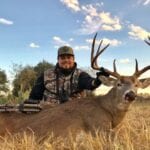 Collin Cottrell was born with hunting in his blood. It’s been part of his family’s heritage for decades. From an early age he learned about the hunting lifestyle from his dad and uncles as he tagged along on hunts in the Minnesota prairies and Northwoods. In fact, one of Collin’s earliest memories is sitting in a deer stand with his dad during the Minnesota’s deer rifle season. From there, he became passionate about the whole hunting experience and has been a hunter for over 20 years.
Collin Cottrell was born with hunting in his blood. It’s been part of his family’s heritage for decades. From an early age he learned about the hunting lifestyle from his dad and uncles as he tagged along on hunts in the Minnesota prairies and Northwoods. In fact, one of Collin’s earliest memories is sitting in a deer stand with his dad during the Minnesota’s deer rifle season. From there, he became passionate about the whole hunting experience and has been a hunter for over 20 years.
Over the years, Collin realized how important it is to the future of hunting to pass the hunting lifestyle on to others. With statistics showing that hunting participation was falling year after year, he decided to start an organization that focused on bringing hunters together and mentoring them on their journey as a hunter. This is where Activate the Hunt started
